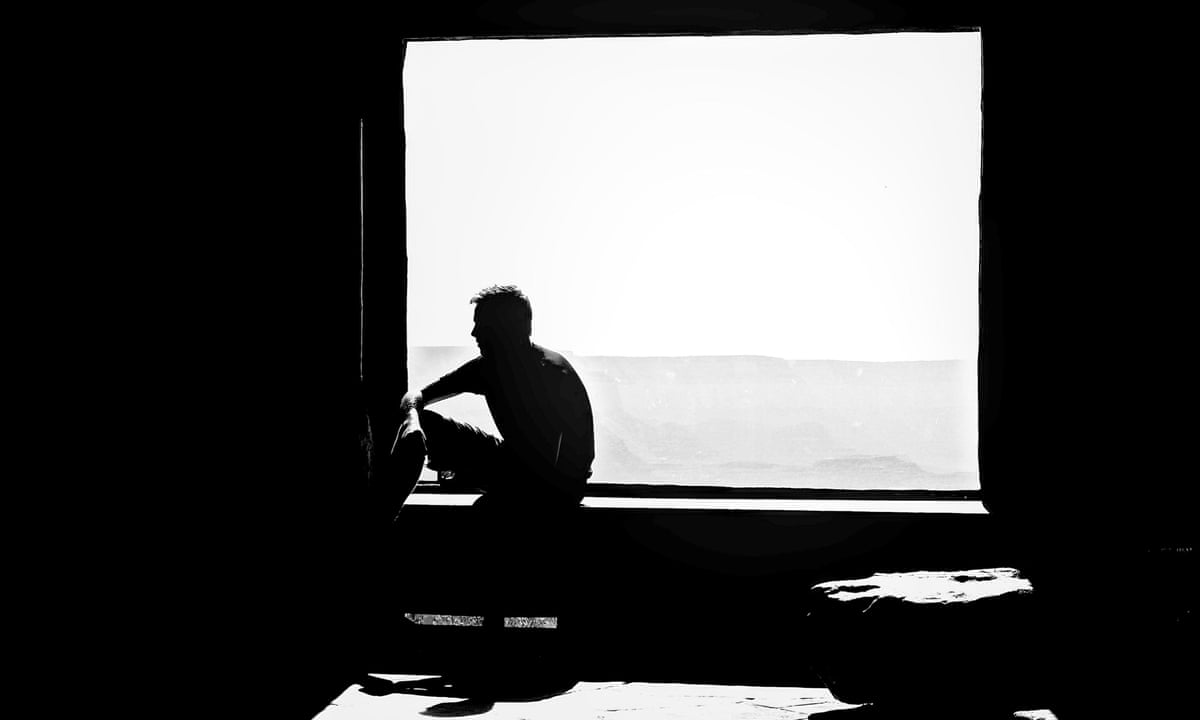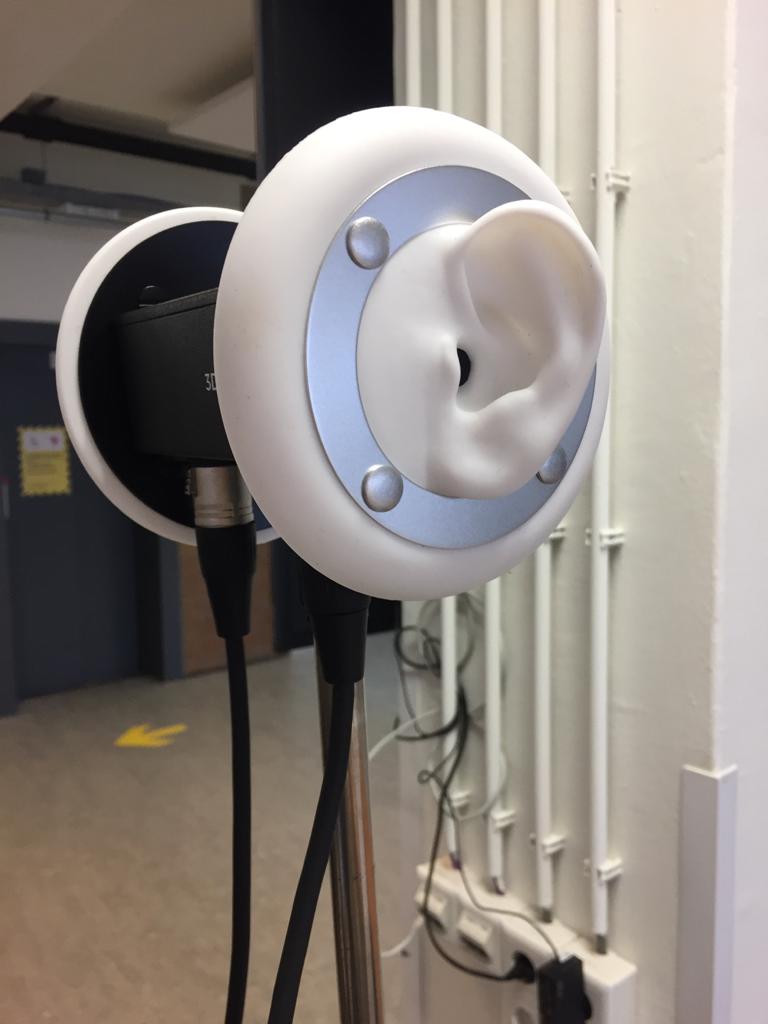Joris van der Pol (OMS): 'We onderschatten wat de impact is van geluid op ons leven'
Introduction
Research Journal
During the observation of the stadswinkel many stimuli and new discoveries came in. It already started with observing the outside where I first became acquainted with the bullet holes that leave traces of the second world war. A first beautiful discovery that I had made. Upon entering the city shop I received several positive stimuli, including a negative one. The notification you hear when it is your turn is loud, striking but also stressful.
The context-mapping that Jermaine and I did result
in different interests that match with each other. An overarching interest is audio.
How could audio play a role in creating
sense or belonging?
Is it possible to create a sense of
belonging using audio?
Research question
1 What is audio?
2 What is the impact of audio?
3 Music and feelings, which sounds influence us?
Sub-questions
Pauline Feitz
1.
What is audio?
Nowadays everyone wears them, earplugs. They come in different sizes, colors, and designs. We tend to shut ourselves off from the rest of the world and disappear into a playlist or podcast. But what if we turn this idea of life around? And use audio as a medium to create a feeling of belonging?
If you search online for this question, you will get different terms, on Wikipedia it says: “an audio signal is a signal that contains information for the audible frequency range. The word audio is Latin and literally means I hear (from audire = to hear).
In the article “the impact of audio” they describe audio in 3 elements.
Voice-overs: This is a voice that provides commentary in a movie outside of the screen.
Sound effects and background sounds that provide the ambiance;
The music composition that you hear while looking at the image. Preferably, it is specially made for the visualization.
The impact of audio, music and sound determine the effect of visualisations up to 60%.
If you watch a Jaws or a James Bond movie with the sound off, the stimuli will come in less strongly. That is the effect that music and sound effects have on the experience. It is an essential part of an experience.
2.
What is the impact of audio?
Joris Van der Pol talks about the power of sound, according to Van der Pol the forms of audio are changing enormously. "Sound is something we experience around us every day, but we don't always realize the impact." Van der Pol is talking about radio commercials in this article, he says that many people underestimate this and that the Radio is actually much more visual than many people think. With sound you can completely take someone along in a story. And this is where Van der Pol sees enormous opportunities.
According to a recent study from Curtin University, background music influences customers in regards to what to buy, time spent in a store, and spending total. This is the result of specific genres or songs subliminally triggering a person's memory, which then impacts their behavior. For example, customers can be influenced to pay more for a product when listening to classical music, compared to when other music or no music is played. A University of Cambridge study found that people who listen to classical music are seen as personable and intellectual, and hearing classical music in a store might push them to pay more for products linked to sophistication.
It's no secret that emotion can be strongly impacted by music - appropriate ambiance can be the deciding factor for a customer when they choose how long to linger in a store, how much to spend, product choice, and whether they'll become a loyal customer . So, how you would like for your customers to act in your store?
What impact has audio on me?
like I said image becomes so much stronger with the right music underneath. With a composed piece it becomes really unique instead of thirteen in a dozen. This way you really impress the target group by conveying the right feeling. You activate something in people's subconscious mind. We are actually not really aware of what music does to us. Only when it is missing do we miss it. Research also shows that audio determines 60% of the impact on an emotional level. We have known this for a long time in our subconscious mind. This means that you can strongly influence the feeling people have about a brand or product by applying the right music. That is why music is essential to us. ”
Activating the subconscious mind
For me, audio, and especially music in this case, has been a big part of my life for a long time. It actually does everything. It can move me, cheer me up, stir me up, give me goosebumps or it can make me sad. I think this is also the case for many, it is not unknown that music has a huge influence on people. Less known is what the exact impact of audio is.
One of my favorite artists working with audio is Zimoun.
zimoun is a swiss artist who lives and works in bern, switzerland. using simple and functional components, zimoun builds architecturally-minded platforms of sound. exploring mechanical rhythm and flow in prepared systems, his installations create for me a form of ultimate peace.
3.
Music and feelings, which sounds influence us?
What happens in our head when you listen to music?
Sounds penetrate far into the depths of the human soul and evoke different emotions. All over the world, certain music creates feelings of joy, sadness or threat. It is not without reason that music is considered a universal language. It works without words and everyone understands immediately. Neuroscientists explain this by the fact that some sounds first address the so-called brainstem, even before consciousness is activated. This area of the brain was already present in prehistoric man. In addition, the brain stem controls important functions such as reflexes and blood pressure. We immediately associate loud noises such as shouting, unexpected drum beats or a dissonant melody with something threatening. Our hearts race before we consciously think about it. For our ancestors, who were hunter-gatherers and exposed to the danger of predators on a daily basis, a quick response was vital to survival.
I recently saw the film Her, this film is about a man who lives in the shadow of his divorce. He tries to find comfort in writing personal letters to write for work. In the store he finds a new product and tries it out, an intelligent, self-aware and self-lubricating operating system for all the computerized products he uses. The voice says exactly what you want to hear and sometimes it says what you didn't know you wanted to hear, but which are still just right.
Although the movie Her is science fiction and I think this can still be very close to reality. Much of the technology you see in the film already exists in part. The technology of, for example, speech reminders in your phone is often used on a daily basis. The software is getting smarter and smarter and the voice from the movie is suddenly not so unreal anymore. Her human voice and the conversations they have together blur the line between technology and reality. In the film they get a relationship with each other, but I see this in the future as a solution for lonely people, and a step backwards creating a sense of reward in the Rotterdam city shop.
Power of Sound: How radio can help combat loneliness
On 1 October, BBC Radio 4 released their findings from the BBC Loneliness Experiment, one of the largest surveys of its kind looking at the causes of loneliness and ways to prevent it. Among its key focus areas was finding out what kind of relationship technology has with feeling lonely, if there is any at all. It asked its 55,000 participants which methods they found helpful for managing loneliness and, like myself, listening to the radio was crucial for many.
A quiet house becomes deafening when you only have your internal voice for company, and the chatter of radio presenters makes it seem less empty by filling its rooms with sound. Having voices in the background might even give the illusion that you are not alone at all. “Some, I think, are using radio as the company itself, as the friendship if you like,” Hammond continues. “Because radio and podcasts are such an intimate medium it does feel like, if the person’s good at it, they’re just talking to you.”

The results showed that listening to music out loud together makes people feel more loved and happier. The team transformed 11,000+ hours of video and 151 million data points into GIFs, social posts, sales materials and even playlists for journalists. The campaign had 2.2 billion impressions, with 515 global media placements including Fast Company, Mashable and Forbes.

The research from the TU Delft concluded that the waiting in the city hall is experienced negatively by the visitors. With this concept we want to change this into a positive experience by creating ‘A sense of belonging’.
You could say that being alone is the opposite of belonging. Loneliness is caused by being alone waiting in the big waiting area of the city hall. Therefore we want the waiters to be able to wait together with someone, making them feel less alone and more connected and therefore also create a sense of belonging.
Since we don’t want to force this experience to all the visitors of the city hall we give the opportunity to - while signing in for example - to accept the virtual experience or not. So the target group for the experience are all visitors interested in “waiting together”.
The visitor can walk to the screen to sign in and get a number. Whereafter the person can choose someone to wait with, by choosing a podcast to listen to made by Rotterdammers. Then the visitor can take a bluetooth headphone to bring to the seating area and listen to the podcast. The topic of the podcasts evolve around important topics that differ from sustainability to Rotterdam nightlife. With these different topics we want to include everyone that visits the city hall to be able to listen to a podcast and feel belonged. The podcasts will be recorded in 3d audio to give another dimension to the podcasts, making the listeners feel like they are actually there at the moment they are listening to the podcast.
Her
Concept 'Samen Wachten'
"On average, we are to spend a total of 1.2 years on hold in our lifetime. And even more when you factor in waiting rooms and lobbies. How can you make this experience ideal?"
What is it that makes you feel that you belong?
[19 responses]
• Recognition from other people around me
• Common responsibility to reach this goal
• When I feel connected to other people and there is trust. And I know I can rely on them.
• Friends, recognition
• The people & the conversations with them! Interactions!
• The interactions with people
• Friends, family, a surrounding with a shared interest.
• Knowing and trusting people, knowing that those people care (and that I care about them), knowing my way, how things work, feeling comfortable amdn free to act and move however I may.
• When I feel energized by my surroundings and when people ‘see’ me in many ways of how I am
• When people support and help me, also small kind things that people do, when people make me feel at ease
• Having people around me that I connect with and that I can share my time with
• Accepting you being right where you need to be
• When people except you for who you are
• Love, openness and vulnerability
• To stay in touch and exchange
• Not much honestly. In some places I feel appreciated, but I feel quite lonely sometimes and not ‘in place’ in most places I go.
• Connectie maken met mensen, elkaar goed kennen en klaarstaan voor elkaar, het gevoel hebben dat het werk zinvol is voor mezelf en/of anderen
Questionnaire
"How audiobooks helped me feel less lonely"
We asked people around us what a sense of belonging meant to them. We found out that there are a few similarities in their answers. We saw the word connection several times, being connected to a place or a person. Also what we found interesting is that they refer a lot to the feeling of being at home. Therefore we can question ourselves, how does it feel to be at home?
What does a sense of belonging mean to you?
[19 responses]
• Being part of something
sense of a shared goal
• Being integrated. And feeling connected to other people which is mostly through physical contact
• The feeling of being home, connection
• It means feeling more whole to me
• Being part of a community and feeling comfortable in an inclusive space
• It is a feeling of being at home, people caring for me or wanting me to be in a space.
• Just like I want to be in that space.
• Feeling at home, which is mostly connected to knowing places, spaces and people.
• That it matters if I’m present.
• Being familiar with the space and the people.
• To love what you do and where you are.
• Feeling at home, comfortable, not judged, being able to be who you are
• Feeling at home and being comfortable to show who you are
• Being content with being yourself
• That I feel good and happy in an environment or activity
• Stability
• To be in touch with and / or to be part of a group that shares common elements
• I think belonging means that people feel heard, seen and / or loved. feeling home, and there is space for you
We also asked what it is that makes them feel belonged? The words we saw that we found most interesting were; Recognition, connection, trust, openness and interaction.
While designing this concept, therefore we are going to take these terms into account to be able to give our target audience this feeling too.
Binaural sound
Perhaps the term Binaural Audio is not familiar to you, but you have been in contact with binaural audio. A nice and clear example of Binaural audio is the posted youtube clip below.
Sit back and enjoy your virtual haircut in the barbershop.
Important:
listen with
headphones!
Binaural beat therapy is an emerging form of sound wave therapy. It takes advantage of the fact that the right and left ear each receive a slightly different frequency tone, but the brain perceives it as a single tone.
Proponents of this type of therapy currently recommend it for the treatment of anxiety, stress and related disorders. This self-help treatment is usually available in the form of audio recordings that someone is listening to through stereo headphones.
Important:
listen with
headphones!
Binaural Audio, explained with the use of it. (Totally worth a listen!)
Conclussion
When I look back at my research, I am convinced that audio creates a sense of belonging. With the help of new techniques such as binaural audio you can create an experience as if the person speaking is in your head.
I knew audio is an important part, and people often forget how much of an impact it has on us. Your ears are more powerful than you think! They can transport you back in time, around the world and into space. All you need is to put on a set of headphones and close your eyes.
This project has given me the opportunity to delve deeper into the world of audio. Something I had not yet done with graphics. The project and its research have given me insights on new techniques and opened a new door to binaural audio. Looking back at my research journal now, I might be able to look even further into the future and speculate about it further. But I think this is a good start for even more new discoveries in the field of audio and a sense of belonging.
Together with Jermaine I was able to borrow a binaural microphone from Rob and we recorded our own audio fragment for our prototype, which you will hear on Monday, so don't forget to get your headphones ready!

Sources
1. “De Impact Van Audio.”
C4Real, 12 Oct. 2018,
c4real.com/nl/artikel/de-impact-van-audio.
2. “Audio.”
Wikipedia, Wikimedia Foundation, 13 Jan. 2020,
nl.wikipedia.org/wiki/Audio.
3. Linssen, Dana. “Her.”
Filmkrant, 8 July 2020,
filmkrant.nl/recensies/her/.
4. Adformatie, Redactie. 'We Onderschatten Wat De Impact Is Van Geluid Op Ons Leven'.”
Adformatie, 21 Sept. 2017,
www.adformatie.nl/merkstrategie/joris-van-der-pol-oms-we-onderschatten-wat-de-impact.
5. “Binaural Beats.”
Wikipedia, Wikimedia Foundation, 2 Mar. 2020,
nl.wikipedia.org/wiki/Binaural_beats.
6. Allen, Ryan. “Why Waiting Music Matters.” Stockmusic.net Blog, 20 Mar. 2020, stockmusic.net/blog/why-waiting-music-matters/.
7. “Can Artificial Intelligence Fight Elderly Loneliness?” BBC Worklife, BBC, www.bbc.com/worklife/article/20200325-can-voice-technologies-using-ai-fight-elderly-loneliness.
8. CustomerTalk, Redactie.
“Muziek Heeft Een Positief Effect Op De Menselijke Gevoelens.” CustomerTalk, 3 May 2019, www.customertalk.nl/artikelen/onderzoek/
muziek-heeft-een-positief-effect-op-de-menselijke-gevoelens/.
9. “Binaural Beats Therapy: Benefits and How They Work.” Medical News Today, MediLexicon International, www.medicalnewstoday.com/articles/320019.
10. “BBC - 16-24 Year Olds Are the Loneliest Age Group According to New BBC Radio 4 Survey - Media Centre.” Bbc.co.uk, 1 Oct. 2018, www.bbc.co.uk/mediacentre/latestnews/2018/loneliest-age-group-radio-4.
11. “How Radio Can Help Combat Loneliness - The Skinny.” Www.Theskinny.co.uk, 1 Oct. 2018, www.theskinny.co.uk/music/opinion/the-power-of-sound-how-listening-to-the-radio-can-help-combat-loneliness.
12. Sonos, Music Makes It Home.” Weber Shandwick EMEA, www.webershandwickemea.com/case-study/sonos-music-makes-home/.

Next Design Lab
0972002